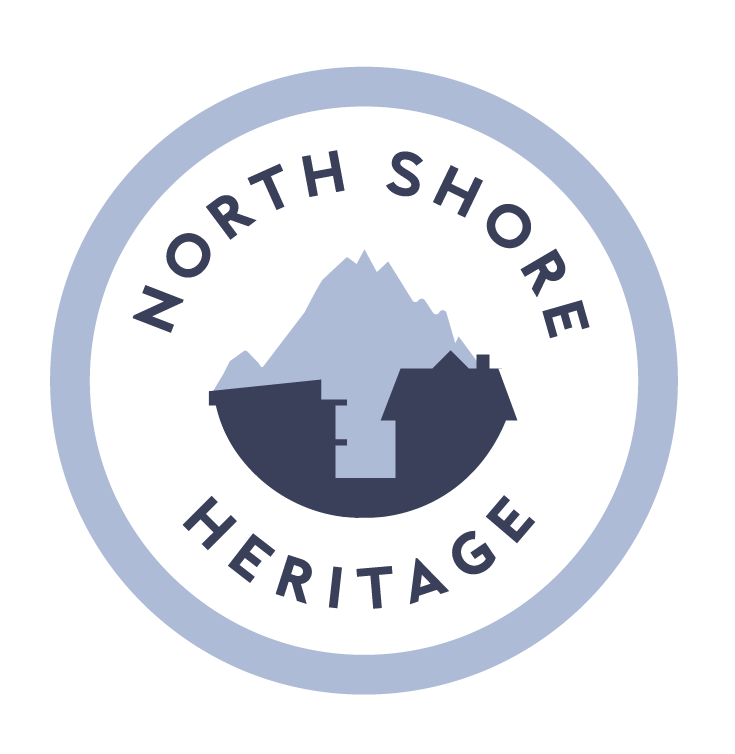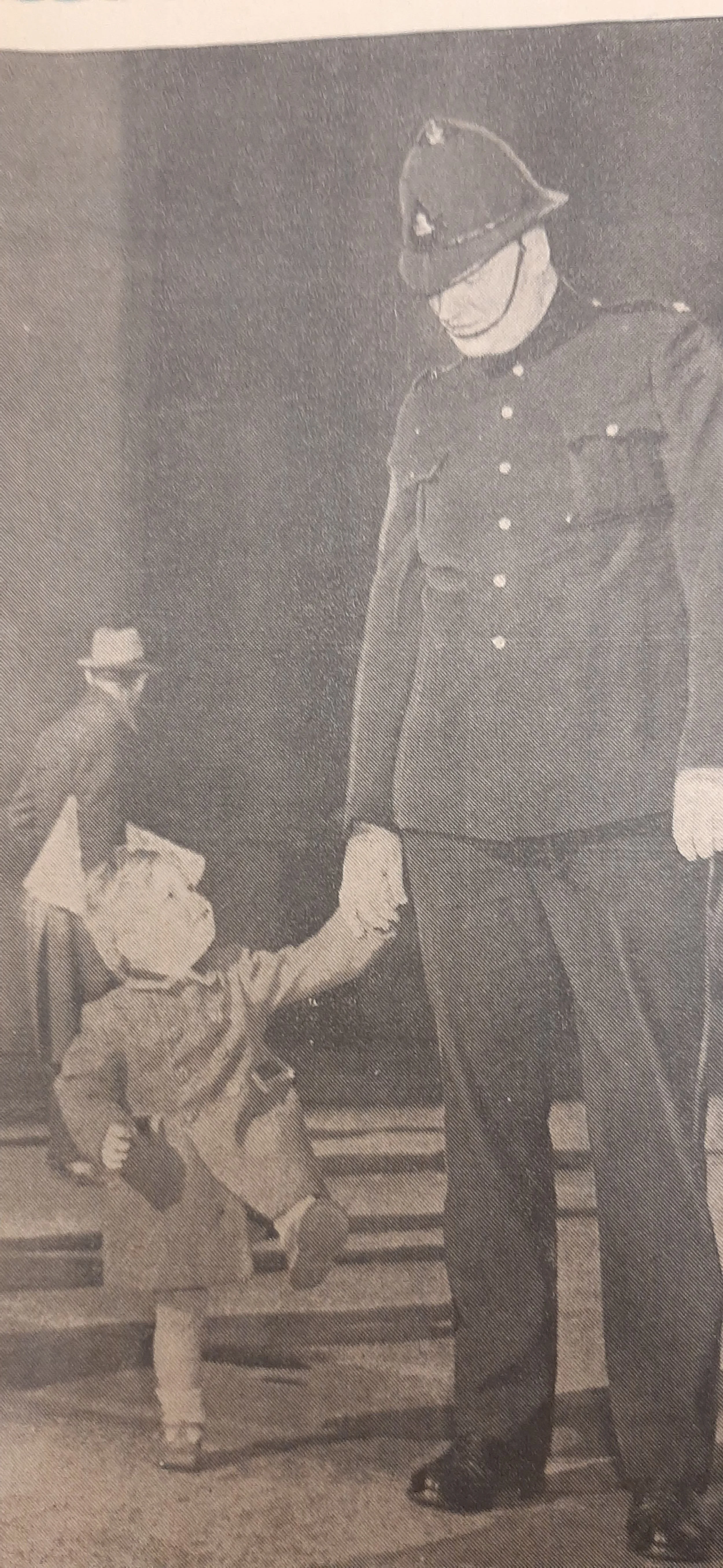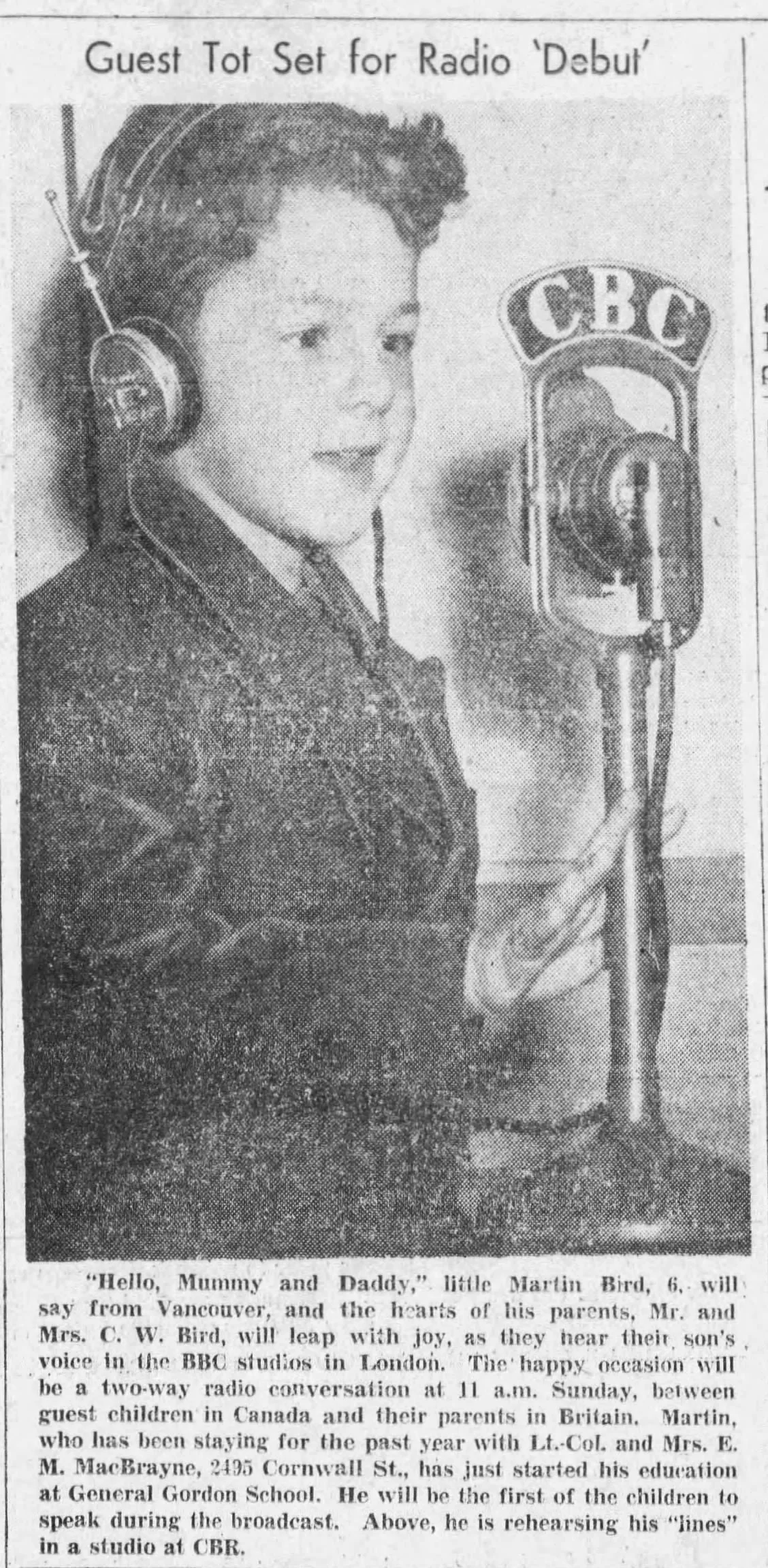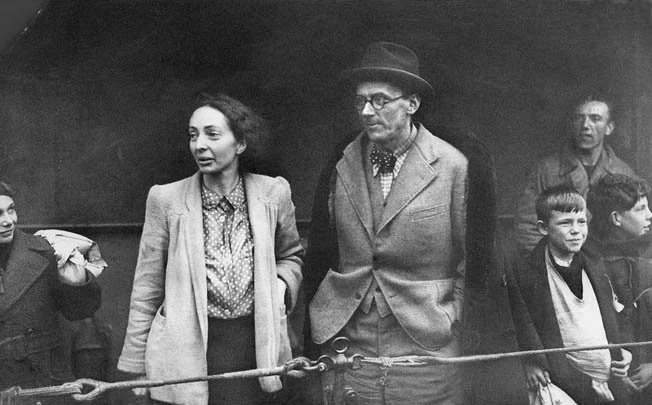Behind the walls of a West Vancouver house lie the memories of a mission of mercy. Built in 1926, 2337 Lawson Avenue was - between 1941 and 1954 – the home of Emma Walker, someone who deserves recognition.
Emma, often referred to in formal circles as Mrs Frank Walker, was instrumental in bringing about the evacuation of children from cities bombed by the German Luftwaffe during the second world war.
In 1938, war clouds were beginning to darken across the European continent. Worried about her two great-nieces living in England, a meeting at a local garden party in May of that year gave Emma an opportunity to initiate an idea – a general evacuation of British and European children to the safety of Canada’s shores. Mrs George Spencer, president of the National Council of Women (NCW), was the listener to Emma’s plan. A resolution was drafted by the North Shore Council for the NCW’s national executive to petition the Canadian government. Initially, Emma’s plan fell on deaf ears. An emergency fund was raised by the North Shore Council and Emma, who had volunteered for Red Cross work in England during the first world war, continued her urging.
Across the Atlantic, similar efforts were in progress. The idea of evacuating British children overseas was initially rejected by parliament, but the war’s worsening position, including the imminent fall of France, prompted a reversal. The Children’s Overseas Reception Board (CORB) was established by the British government and the first complement of children left British shores for Canada in July 1940.
Emma Walker’s efforts had proven not to be in vain. In addition to approximately 6,000 privately-sponsored children evacuated, 1532 CORB children were sent from Britain to Canada during July and September of 1940, of which 206 came to British Columbia.
In 1940 a little boy newly arrived from Britain marches from the train station in Toronto holding the hand of a Canadian policeman. Courtesy, City of Vancouver Archives
Yolande and her younger sister, Anne, the great-nieces of Emma Walker arrived from Britain in August 1940, staying at the Walker residence in West Vancouver for the duration of the war. Clip from The Province 3 August 1942. Courtesy, newspapers.com.
One of the evacuees, known here as ‘guest children’, was Peter West, aged 13. As the newspaper clip below shows, Peter - who attended one of the North Shore boarding schools - was one of the lucky few chosen to speak to his parents via a CBC overseas two-way radio hook-up.
Clip from Vancouver Sun 18 October 1941. Courtesy, newspapers.com
Martin Bird, aged 6, was another participant in the regular CBC/BBC broadcasts.
Clip from Vancouver Sun 20 September 1941. Courtesy, newspapers.com.
It was a tragic event that brought about the end of the CORB ‘guest children’ programme. On September 17th 1940, the SS City of Benares, a ship carrying 90 children from Liverpool to Montreal was torpedoed by a German U-boat. The ship sank 600 miles west of Ireland with the loss of 258 of 408 passengers on board.
A British warship rescued 104 people in an initial search of the disaster area. The seas were rough and many of the lifeboats had floundered as they were launched. It was 8 days later when a Sunderland Flying Boat happened to spot a single lifeboat, Lifeboat 12, floating mid Atlantic. 46 passengers, including one woman and six boys, had survived tempestuous seas, bitter cold and scarce rations. They were carried aboard a rescue ship, HMS Anthony.
Lifeboat 12 from the Benares sinking prior to being rescued by HMS Anthony. General release photograph.
Mary Cornish on board HMS Anthony prior to docking back in Britain. General release photograph.
Mary Cornish, the sole woman on board Lifeboat 12, had volunteered as one of the CORB children’s escorts. Feted as a heroine for keeping alive the six boys as well as marshalling children onto the decks of the sinking SS City of Benares, she was devastated by the discovery that only two of the fifteen girls in her original care on board the ship had survived. Mary was awarded the Order of the British Empire medal by King George VI, but suffered a breakdown after the tragedy and for the rest of her life shunned the limelight caused by it.
The sinking of the SS City of Benares, a civilian passenger ship, was one of the worst maritime disasters of the war. Only 19 of the 100 children (including 90 CORB children) on board survived. Public outrage at the sinking led to the British government’s cancellation of the overseas evacuation programme.
On a happier note, the vast majority of the guest children brought from Europe to Canada thrived. Many returned to their homelands at the end of the war with intentions of returning. On this Remembrance Day we give thanks to the gallantry of women such as Emma Walker and Mary Cornish, amongst countless others, who went beyond the pale in their efforts to help the evacuated children.
Additional Facts:
Emma Walker spent her latter years campaigning against racial discrimination as chair of the North Shore Canadian National Refugee Committee. She died in 1954 whilst still residing at 2337 Lawson Avenue, West Vancouver. Regrettably, there is no printable picture of her.
Emma Walker’s obituary from The Province 19th October 1954. Courtesy, newspapers.com
Mary Cornish is a great-niece of Benjamin Cornish, the builder of Cornish House in Upper Lonsdale, North Vancouver. Elspeth Huxley’s book, “Atlantic Ordeal: The Story of Mary Cornish” written in 1941 is out of print although an original hardcopy, signed by Mary Cornish, is in the possession of Cornish family descendants living on Vancouver Island and reproduced here.
Mary Cornish, as depicted in Elspeth Huxley’s book, “Atlantic Ordeal: The Story of Mary Cornish”. Courtesy, the Cornish family.
Except where indicated, text and images Copyright @ North Shore Heritage and Paul Haston. All rights reserved. Republication in whole or in part is prohibited without the written consent of the copyright holder.
References:
MONOVA, North Vancouver Museum and Archives https://monova.ca/archives/
City of Vancouver Archives https://searcharchives.vancouver.ca/
DOWN MEMORY LANE Revealed at last '“ the final years of war heroine
British Pathe news clip from 1940: More children rescued from torpedoed SS City of Benares - British Pathé
More children rescued from torpedoed SS City of Benares (1940)








